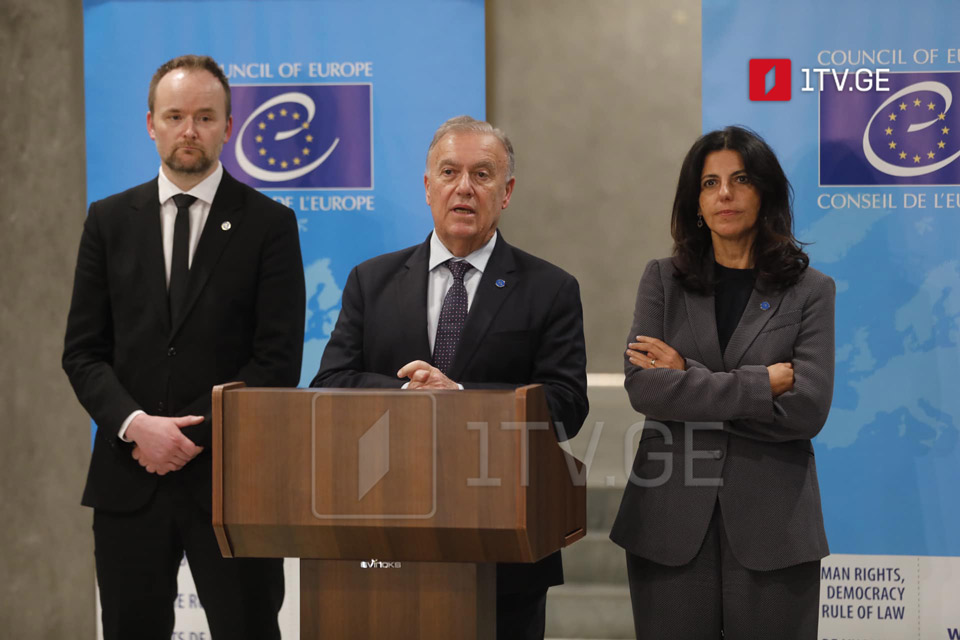Venice Commission came to Georgia to show its commitment, Vice President says
“The Venice Commission has come to Georgia to show its commitment to Georgia and to the continued improvement of democracy, the rule of law, and human rights in Georgia and Georgian society,” said Vice President of the Venice Commission, Michael Frendo following his meetings with Georgian officials.
The meetings covered the importance of the recommendations that the Venice Commission gives in its opinions.
“We also indicate specific red lines, and, of course, these are very important for us in terms of the opinions themselves. We are, of course, committed to dialogue because none of the opinions of the Venice Commission, which is not a political organization, it is an organization of legal experts, and we are here not to dictate, but to accompany Georgia in its European path.
In our interlocution, in our discussions with all the interlocutors that I’ve mentioned, of course, we expressed congratulations for having achieved, or about to achieve the candidate status for membership of the European Union.
Of course, we are conscious that this is the Council of Europe, not the European Union. The Venice Commission is part of the Council of Europe, but we also know that the European Union makes specific reference to Venice Commission opinions in its negotiations and discussions with Georgia. Therefore, in our assessment, as you go along this path, the Venice Commission would be as committed, if not more committed, to standing alongside Georgia and giving its advice and offering its opinions along the road to a new path that has opened and is about to open in December,” he asserted.
Michael Frendo noted that “The golden rule in the Venice Commission is that the discussions there remain among the rapporteurs, that we come to listen to all stakeholders in society and that the discussion will carry on till the plenary until they are adopted.”
“It’s when they are adopted that they will become public, and then we can start to comment on these. In terms of red lines, again, these are essentially the recommendations which we make, and particularly the key recommendations which we make in opinions. These are setting the standards based on European values, and it is these recommendations that therefore constitute what we are calling the red lines. Particularly the key recommendations and that depends, of course, on every single different opinion,” he added.
